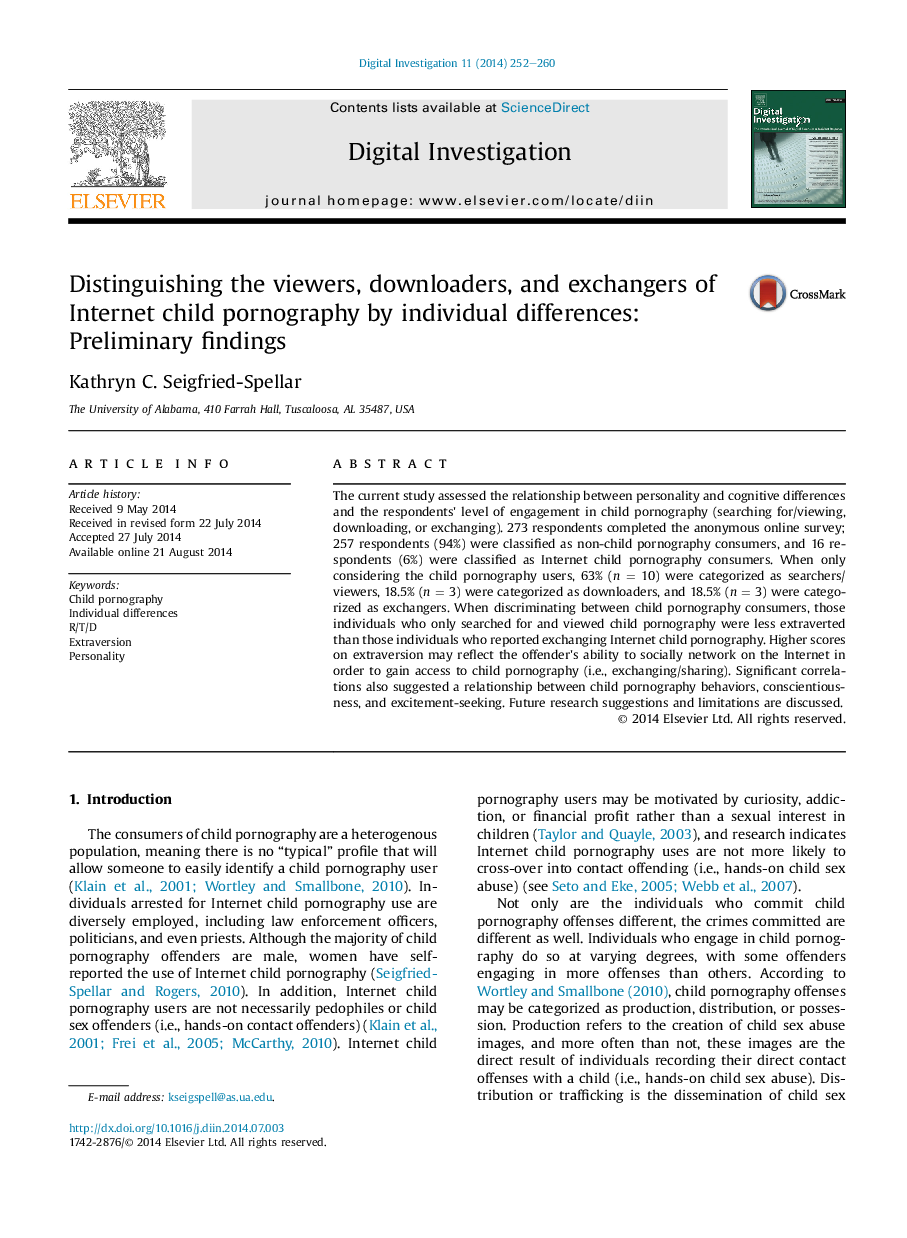| Article ID | Journal | Published Year | Pages | File Type |
|---|---|---|---|---|
| 457819 | Digital Investigation | 2014 | 9 Pages |
The current study assessed the relationship between personality and cognitive differences and the respondents' level of engagement in child pornography (searching for/viewing, downloading, or exchanging). 273 respondents completed the anonymous online survey; 257 respondents (94%) were classified as non-child pornography consumers, and 16 respondents (6%) were classified as Internet child pornography consumers. When only considering the child pornography users, 63% (n = 10) were categorized as searchers/viewers, 18.5% (n = 3) were categorized as downloaders, and 18.5% (n = 3) were categorized as exchangers. When discriminating between child pornography consumers, those individuals who only searched for and viewed child pornography were less extraverted than those individuals who reported exchanging Internet child pornography. Higher scores on extraversion may reflect the offender's ability to socially network on the Internet in order to gain access to child pornography (i.e., exchanging/sharing). Significant correlations also suggested a relationship between child pornography behaviors, conscientiousness, and excitement-seeking. Future research suggestions and limitations are discussed.
